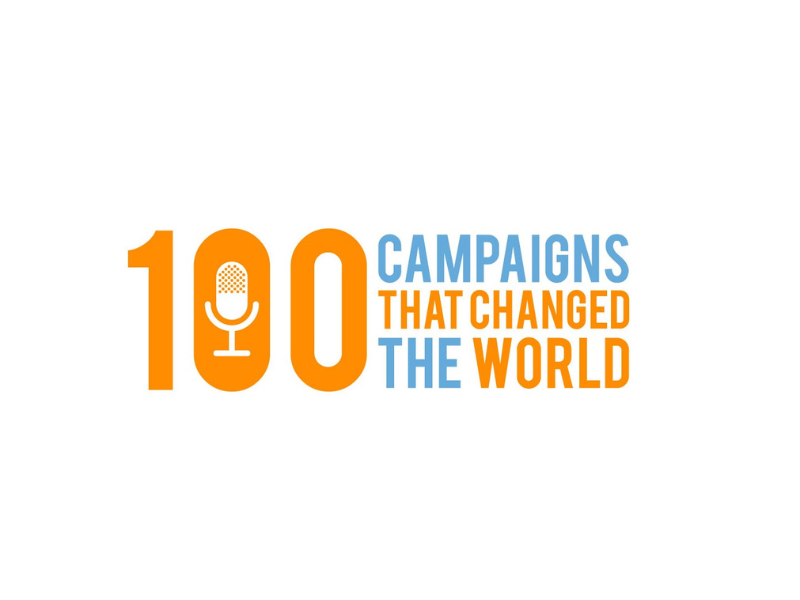Learning lessons from past campaigns can help campaigners be more effective. In the Podcast series 100 Campaigns That Changed the World Steve Tibbett examines some of the most important campaign in the UK and beyond. These are some of the lessons he’s teased out.
Learning from campaigning can be tricky. Maybe it’s because campaigners prefer looking forward rather than back. Maybe it’s because lessons can be difficult to isolate from complex campaigns with lots of moving parts. Or maybe it’s that campaigns come in all shapes and sizes (the campaign to Stop the European Super League, which ran for 48 hours can’t easily be compared to the campaign for women’s suffrage which took upwards of 48 years).
So that’s the first lesson: no two campaigns are the same.
The second is that campaigns (usually) take time to win. Football fans may have secured a (possibly temporary) ‘win’ in short order, but the campaigning norm is more in line with the Suffragettes’ schedule. As Helen Pankhurst, the great-granddaughter of Emmeline Pankhurst, reminded me, in some parts of the world we are still not there yet, in terms of women’s right to vote.
The Suffragettes – famous for their civil disobedience, but actually deploying a wide range of tactics – framed the issue as one of justice. And that’s my third lesson, framing can be decisive in successful campaigns. Although, as Andrew Copson told me, the ‘obvious’ framing, such as justice or human rights, doesn’t always work best. With the campaign for marriage equality, the ‘love framing’ was more powerful.
Framing was also key for Better Together, the collective effort to secure a ‘no’ vote in the Scottish Independence referendum. This was an example of a fourth lesson – sometimes in campaigning, no progress is a good outcome. That’s an important thing for funders of advocacy, as well as campaigners, to think about.
Peter Tatchell, with 60 years of activism under his belt, is no stranger to both progress and disappointment. People like him and Kumi Naidoo have dedicated their lives to activism, despite experiencing threats, aggression, and setbacks in their campaigning. Peter told me that he had been subject to violence hundreds of times. Even though many campaigners never receive such harsh personal treatment, resilience is a repeated theme I came across. The need to dedicate time to exploring how you can build your resilience and that of others, is the fifth lesson.
What Kumi and Peter also have in common, along with important campaigners like Margaret Aspinall and Paul Afshar, is their ability to harness the power of their ‘lived’ or first-hand experience. This allows them to speak with more authority and legitimacy, frequently carrying more weight with the media and decision-makers, than purely ‘professional’ campaigners.
Successful campaigns I have covered such as the abolition of the slave trade, women’s suffrage, the removal of the Irish constitutional ban on abortion, and equal marriage all ‘leaned in’ to the specific circumstances and context. These were issues whose ‘time had come’ in many ways, so lesson number seven is that timing is (almost) everything. Here, it’s important to acknowledge that the shifts needed to bring us to that point are usually down to the efforts of many people and communities, often across decades, and in that respect campaigners who ‘bring it home’ are very much standing on the shoulders of giants.
The last two lessons are that alliances are usually necessary and that you need to think about power. Almost all the campaigns featured on 100 Campaign so far work in alliances. They do this – at least in part – to counteract the power of the ‘other side’, and to make themselves look bigger, more reasonable, more mainstream, difficult to ignore. Power and the dynamics of power should be a guide to your campaign strategy and positioning.
Despite this, I have found that too few campaigners think enough about the opposing forces ranged against them. Countering the opposition and working out how to do that is often underplayed in campaigns, with campaigners sometimes overestimating their own power and importance, and thinking more about short term gains than the long term goal. This can lead to half victories and partial wins. Winning sustainably requires more thought about power and opposition. As the often-quoted Sun Tzu said: “If you know yourself but not the enemy, for every victory gained you will also suffer a defeat”.

